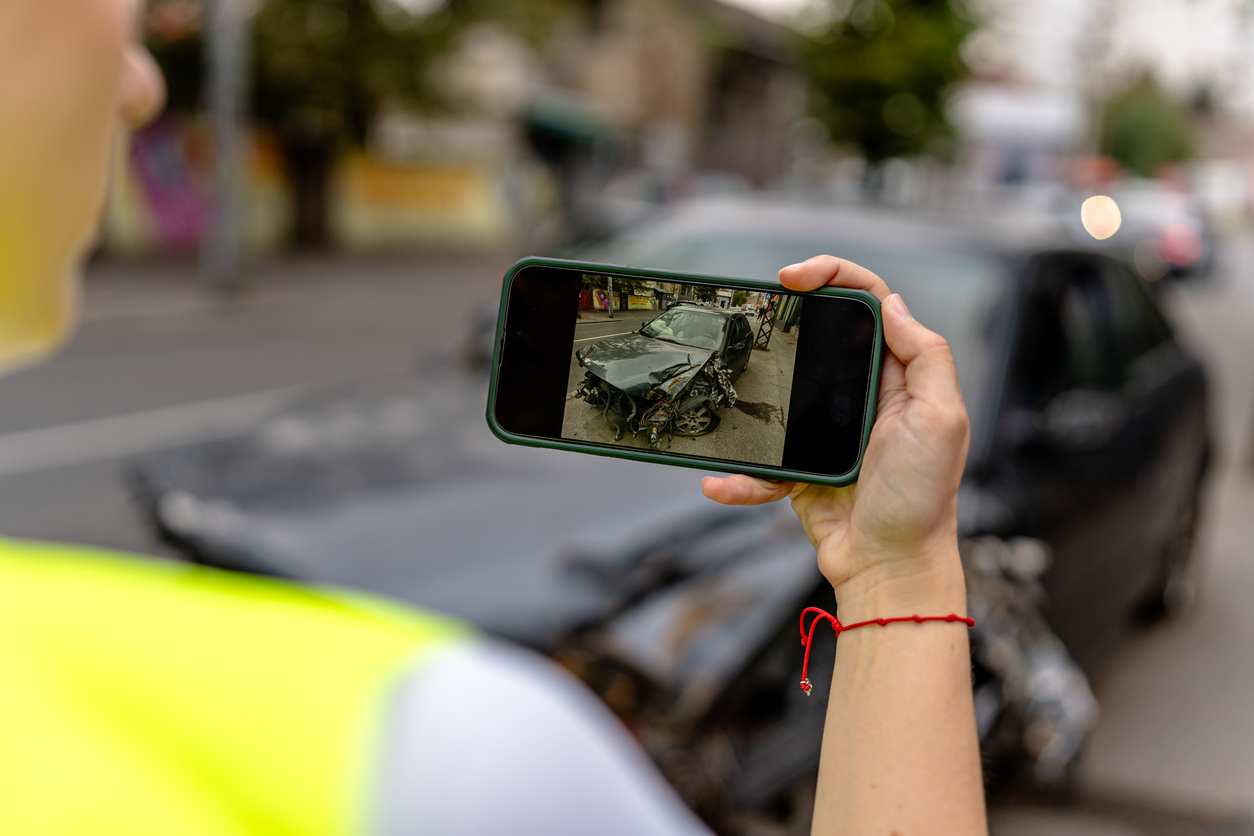Twenty years ago, drivers were told to keep a disposable camera in their emergency kits for accident photos. Today, most of us can take pictures and videos with our phones. Even so, that is not always enough. Georgia drivers should be aware of what they need to do after an accident to ensure that their insurance claim—or eventual lawsuit—goes as smoothly as possible.
Capturing the Accident
Once you and your passengers are safe, you should take as many photos and videos as possible. Even if you are stuck inside the car, taking videos or photos of yourself and the car’s interior can be helpful. You will also need photos of any injuries you or your passengers have suffered.
Every angle and view can be important, inside and out, especially if the collision appears simple. Extensive footage of all the cars involved can clarify later claims about damage or injuries that did not seem apparent at the time. You should also film the surroundings, including:
- The rate of traffic
- Weather conditions
- The nearest traffic signs and signals
- Crash damage to the road or surroundings
- Road conditions or obstacles, such as potholes
- Local businesses, residences, and street numbers
Back up your photos and videos as soon as possible, but don’t use social media for this. In fact, please don’t make any posts about the accident; it’s smart to minimize your online presence. No matter what you might post online, insurance investigators can seize it as evidence that you weren’t suffering the damages that you claim.
As soon as you are able, write down your memories and impressions of the accident. It is wise to keep a journal of your experiences, documenting any pain, mental distress, and loss of capability after the accident. The more evidence you have of your car accident, the stronger your personal injury claim will be.
Other Sources of Information
Eyewitnesses are a valuable resource, but they can easily slip away, especially if they don’t think what they saw was important. If at all possible, get the contact information of any witnesses at the scene.
Nearby businesses or homes may have surveillance videos that captured the accident. If you have clear photos of your location, you can see traffic cameras and determine which buildings have a possible view. Your attorney can investigate these locations and request any footage they may have.
Obligations at the Accident Scene
Both drivers are entitled to each other’s information and aid. In Georgia, a driver involved in a crash that results in injury or property damage has a legal obligation to stop and:
- Help or get help for anyone injured
- Give their name, address, and vehicle registration to the other driver
- Show their driver’s license, on request, to any driver, passenger, or person with damaged property, as well as any responding police officer
Although the law does not mention insurance information, do not forget this. You will be required to provide proof of insurance to a responding officer and to any other drivers involved in the accident.
You must contact law enforcement for any collision that results in death, injury, or property damage that appears to be worth more than $500. A long-form crash report is required for any collision that involves:
- Death
- Injury, pain, or discomfort
- A vehicle disabled enough to require towing
- A commercial motor vehicle (CMV), such as a truck or bus
If a police officer responds to the accident, they will file this form for you. The report must include the driver’s personal information and auto insurance information, as well as the information of any witnesses available. You or your representative will be able to obtain this report later to use in your personal injury case.
Even if you do not see any injuries or feel any pain at the scene, get a medical exam as soon as possible. If you do not receive treatment for your accident within 14 days, your insurance may not pay the expenses. More importantly, car accidents can cause many debilitating injuries—such as whiplash, internal bleeding, and head trauma—that do not show symptoms for hours or even days afterward.
How Accident Evidence Is Used
When you contact a personal injury attorney, they will review your evidence and follow up on it where necessary—contacting witnesses and requesting surveillance video. To complete your case for damages, you will also need:
- Medical records from your exams after the accident
- Bills for medications and support devices
- Car repair records and invoices
- Receipts or invoices for other property destroyed or damaged in the collision
- Paystubs or other documents showing lost wages and income following the collision
Your attorney will discuss your case with you and prepare a claim for damages based on your evidence—and you will need as much evidence as you can get.
You may be able to make a claim against the other driver for excess damages or certain severe and permanent injuries. Talk to an attorney as soon as possible after your accident to determine how to protect your rights.
Don’t Take This Road Alone
We know how to untangle Georgia’s complex insurance laws and fight for you. If you have suffered a Georgia car accident, truck accident, or pedestrian collision, call us today at 855-909-3021 to schedule your free consultation with an attorney.

 (855) 909-3021
(855) 909-3021






